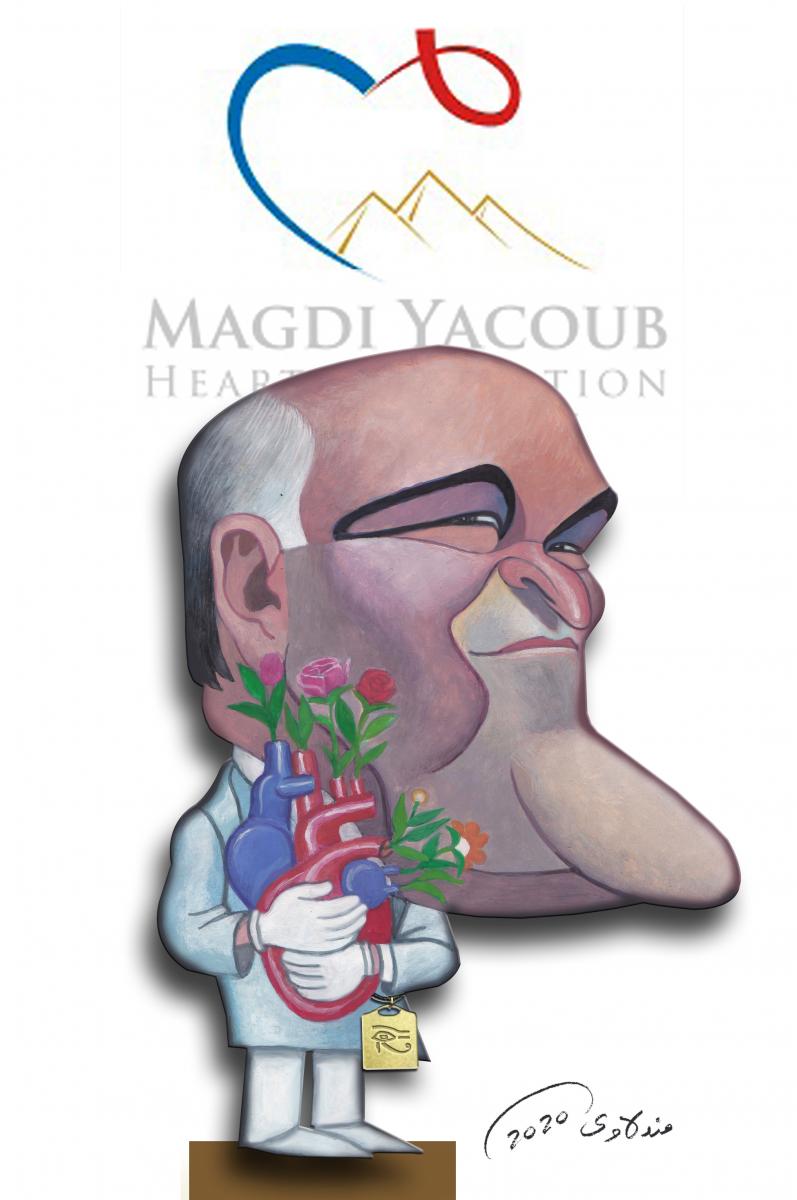
Magdi Yacoub was born into a Coptic Christian family on 16 November 1935 in Bilbeis, Al Sharqia, Egypt. He studied at Cairo University and qualified as a doctor in 1957. He reportedly said he decided to specialise in heart surgery after his aunt died of heart disease in her early 20's.
He moved to Britain in 1962, where he worked in the cardiac surgery section of various leading hospitals gradually gaining experience and reputation as a cardiothoracic surgeon in equal measure. In 1968, he went to the United States where he worked at the University of Chicago as an Associate Professor for a year. Yacoub returned to London and started working as a consultant cardiothoracic surgeon at Harefield Hospital. He continued to serve at the hospital till 2001. During his association with the hospital, it became a pioneer and a leading institute for transplant surgery. Post-operative survival rates increased and there was a reduction in the recovery periods spent in isolation and in the financial cost of each procedure.
In December 1983, Yacoub performed the UK's first heart and lung transplant at Harefield. He was appointed professor at the National Heart and Lung Institute in 1986, and was involved in the development of the techniques of heart and heart-lung transplantation.
Between August and October 1988 Greek Prime Minister Andreas Papandreou was hospitalized at Harefield, which he entered at a very critical condition, and Yacoub performed an open heart triple bypass surgery on the Prime Minister, saving his life.
He was also instrumental in performing the first open heart surgery in Nigeria, when he in his capacity as a visiting professor at the University of Nigeria, joined hands with the likes of Fabian Udekwu, Nsukka and others to achieve the unique feat.
Yacoub established the largest heart and lung transplantation programme in the world where more than 2,500 transplant operations have been performed. He has also developed novel operations for a number of complex congenital heart anomalies. He was knighted for his services to medicine and surgery in 1991, awarded Fellowship of the Academy of Medical Sciences in 1998 and Fellowship of The Royal Society in 1999. A lifetime outstanding achievement award in recognition of his contribution to medicine was presented to Professor Yacoub by the Secretary of State for Health in the same year.
Having retired from performing surgery for the National Health Service in 2001 at the age of 65, Yacoub continues to act as a high-profile consultant and ambassador for the benefits of transplant surgery. He continues to operate on children through his charity, Chain of Hope.
In 2006 he briefly came out of retirement to advise on a complicated procedure which required removing a transplant heart from a patient whose own heart had recovered. The patient's original heart had not been removed during transplant surgery nearly a decade earlier in the hope it might recover.
Yacoub has an active interest in global healthcare delivery with particular focus developing programmes in Egypt, The Gulf Region, Mozambique, Ethiopia and Jamaica. He is Founder and President of the Chain of Hope charity, treating children with correctable cardiac conditions from war-torn and developing countries and establishing training and research programmes in local cardiac units. He is also the head of the Magdi Yacoub Global Heart Foundation, co-founded with Ahmed Zewaii and Ambassador Mohamed Shaker in 2008, which launched the Aswan Heart project and founded the Aswan Heart Centre the following year.







